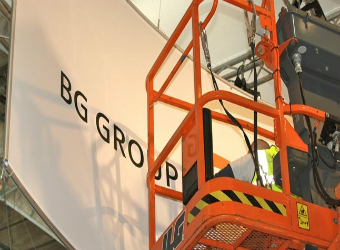Tunisia is proving a more reliable place to produce natural gas than Egypt as the smallest nation on the North African coast pays its fuel bills on time, a BG Group Plc (BG/) executive said.
“The ability for Tunisia to continue to honor its contracts and to continue to pay for its energy supplies is fundamental for BG’s continued appetite,” Michael Rees, BG president in Tunisia, said in an interview yesterday in Tunis. “Unlike Egypt, where there are lots of challenges in terms of payments and in terms of renegotiation of contracts, this stability is needed because it’s a tough place geologically to invest.”
BG Group is delaying the West Delta Deep Marine project in Egypt amid political turmoil that has curtailed the nation’s ability to pay foreign companies, the Reading, England-based company said last month.
Secular and Islamic conservative groups that united two years ago in Tunisia and Egypt to overthrow their respective leaders later failed to agree on how to govern. The army intervened in Egypt to topple an elected Islamist president while the Islamist-led government in Tunisia is trying to resolve a conflict with the secular opposition through dialogue.
Tunisia is a net fuel importer, unlike neighboring Libya and Algeria that sit respectively on Africa’s largest oil reserves and second-largest gas reserves.
BG is the largest gas producer in Tunisia, supplying the nation with 60,000 barrels of oil equivalent a day, or 60 percent of its consumption, from the offshore Hasdrubal and Miskar fields, in the Gulf of Gabes. The country buys the rest of its gas from Algeria.
Hasdrubal, Miskar
Hasdrubal came on stream in 2010 and has reached its plateau production of about 35,000 barrels of oil equivalent a day, while Miskar, which has been in production for 17 years, supplies 25,000 barrels of oil equivalent a day, according to Rees. BG plans work to slow down the decline in Miskar and the two fields should produce at the same rate next year, he said.
“It’s been a fantastic performance for Hasdrubal this year, it’s been safe, it’s been consistent and delivering in excess of 98 percent of operational efficiency,” he said.
BG is also looking to allow other companies operating in the Gulf of Gabes to use its pipelines and facilities in return for a fee, he said. “We have the infrastructure in which we invested heavily, Tunisia is very keen and BG is very keen to use this infrastructure,” he said.
OMV AG (OMV), PA Resources AB (POU) and Sonde Resources Corp. (SOQ) are among companies operating in the Gulf of Gabes, according to the website of the Tunisia’s state-oil company ETAP.
Source: Bloomberg
